The speech that Silvia Pankhurst gave while in Gothenburg was monitored by the police, but incorrectly archived and not found again until last spring by archivist Karl-Magnus Johansson.
It was the inquiry from a journalist about what was in the archives about Sylvia Pankhurst’s visit to Gothenburg, just before the 100 anniversary of women’s right to vote in Sweden, that made him start looking. The controversial suffragette had been invited by the radical voting rights activist Frigga Carlberg.
After great effort Johansson found the transcript of Pankhurst’s speech, that was shorthanded because of police surveillance. The British suffragettes where considered terrorists and combating them was the pretext of the times to introduce repressive legislation and new police methods.
The Gothenburg Book Fair and Feminist Perspective invited Sylvia Pankhurst’s granddaughter, author and feminist Helen Pankhurst to participat in several talks during the fair last autumn. In addition she was also was given the opportunity to take part of her grandmother’s printed speech.
Karl-Magnus Johansson explains the circumstances. How the police’ own stenographers where not proficient in English so the assignment was given a person from typewriter company Remington. How Frigga Carlberg, one of twelve founders of The National Association for Women’s Political Voting Rights in Sweden, was prevented from inviting Pankhurst in the name of the organisation, so she did it personally.
The event has been called the most radical in the history of the Swedish movement for women’s suffrage. Karl-Magnus Johansson’s entire story is included in A hundred and one Gothenburg women, an anthology edited by Lisbeth Larsson and published by The National Archives in Gothenburg. A shorter version was published in Feminist Perspective in connection with the book fair. Excerpts from the book are exhibited in the entrance of the archives. All of this to make the story more accessible.
Since before, Helen Pankhurst knew that her grandmother had been in Sweden, but no further details. She finds it fascinating to see the original, which she had time to access in its digital version in advance, and notes that the speech that Sylvia Pankhurst held in Gothenburg was very powerful. Early on, she questions the double standards regarding violence used by the British suffragettes. Helen Pankhurst reads from the document:
”Now, people criticise very much the methods of obtaining the vote employed by British women, though if the same methods that we employ were employed by any civilised body of men who were striving to obtain freedom, they would consider them very mild methods, but, of course, our methods always aim to protect lives and limbs, and the methods we use are very much milder than those ever adopted by any men who have come to the conclusion – as we have done – that fair reason and argument will not be noticed by the people who are in power and who are refusing to grant them a hearing. No body of men have ever said ’Our cause is just, and we feel we must fight’, and at the same time have used methods such as ours. But many people refuse to believe this. They say ”It is quite true, you women are fighting for the vote, you are prepared to sacrifice yourselves and you injure other people by doing it.’ They say ’We do not expect from women any kind of fighting, any kind of force in addition to argument by words, we expect from women that they shall only argue and compel, and try to show justice for their cause.”.
– The reason for militancy is straight up there, isn’t it, second paragraph!
Helen Pankhurst also notes the date of the speech, October 1, 1913, with interest. By then some militancy had been employed by the suffragettes and her grandmother was still member of Women’s Social and Political Union (WSPU), but would soon be expelled.
– So the differences of opinion are already there, one of which is how far to go in terms of militancy. It is fascinating to reflect on how relevant everything she says is, in terms of pay inequality, of poor women and poor men, many of the aspects that she brings up are still so valid today. I love the way she gives very concrete examples, like ”Yesterday I met somebody…” or ”In one of the strikes of the laundry workers…”.
The speech is very long, one and a half hours. Towards the end, Remington's envoy abandons the shorthand and sums up what Sylvia Pankhurst says instead.
– And actually, what he doesn’t share, you do wonder why – is it at this point that he is so exhausted or some of this might have been quite graphic? Pankhurst reflects and continues to read the summary aloud:
”The rest of miss Pankhurst’s remarks are devoted to illustrate the means which the Woman’s Suffrage League have adopted in order to get the Government recognize their claims. She gave a graphic description of the suffering of the women in prison ”Martyrs to the cause” as she put it, how they underwent starvation or ”hunger-strike” and of the means employed by the Prison doctors to force the food into their stomachs by injections through the nostrils etc. If they were unable to feed them through the nostrils, they forced open the mouth of the victim with steel pliers, sometimes, if the patient resisted, until the gums bled. She herself had undergone the ”hunger-strike”, was kept in prison and then released, but although still so weak that she could not stand, she had the pluck to address a large meeting two days after release from prison, and she had to do so sitting down.”
– So I think some of the reality, and the impact, of what was going on – it does come through. Not just her experiences of what people were saying but also what she herself was experiencing, says Helen Pankhurst and notes that the stenographer, seems to have been touched by the speech.
In her book Deeds not words, which was her great grandmother and leading suffragette Emmeline Pankhurst’s slogan, she reflects on what the struggle for voting rights has to say to feminists today.

Magnus Johansson och Helen Pankhurst in the archives exhibition about Gothenburg women.
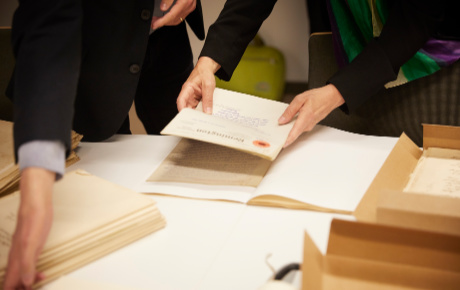
Helen Pankhurs browses the documents.
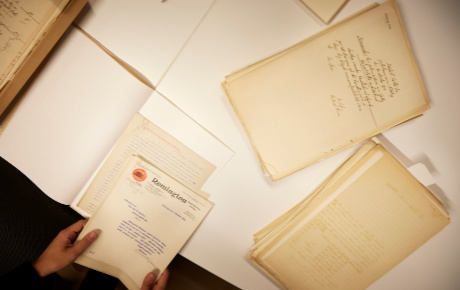
Typewritten transcription of the shorthand ordered by the Gothenburg police by typewriter company Remington.
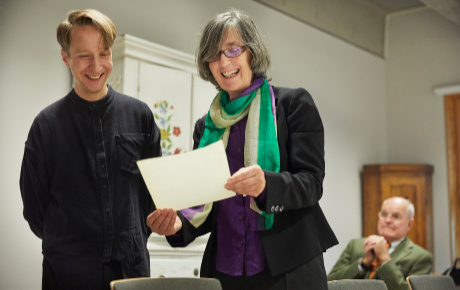
Helen Pankhurst is impressed by Karl-Magnus Johansson’s archive work, which uncovered her grandmother's mis-archived speech.
Photos: Anna-Lena Lundqvist
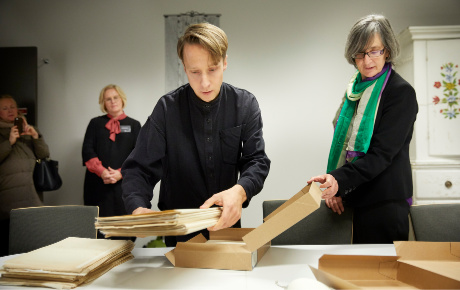
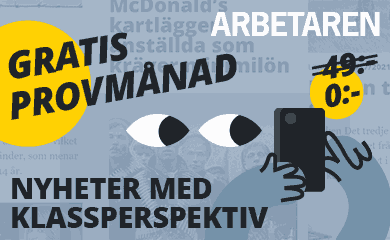

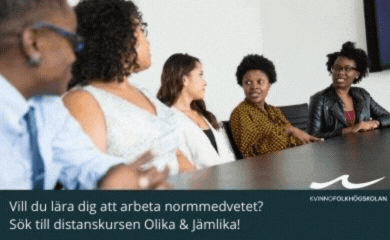









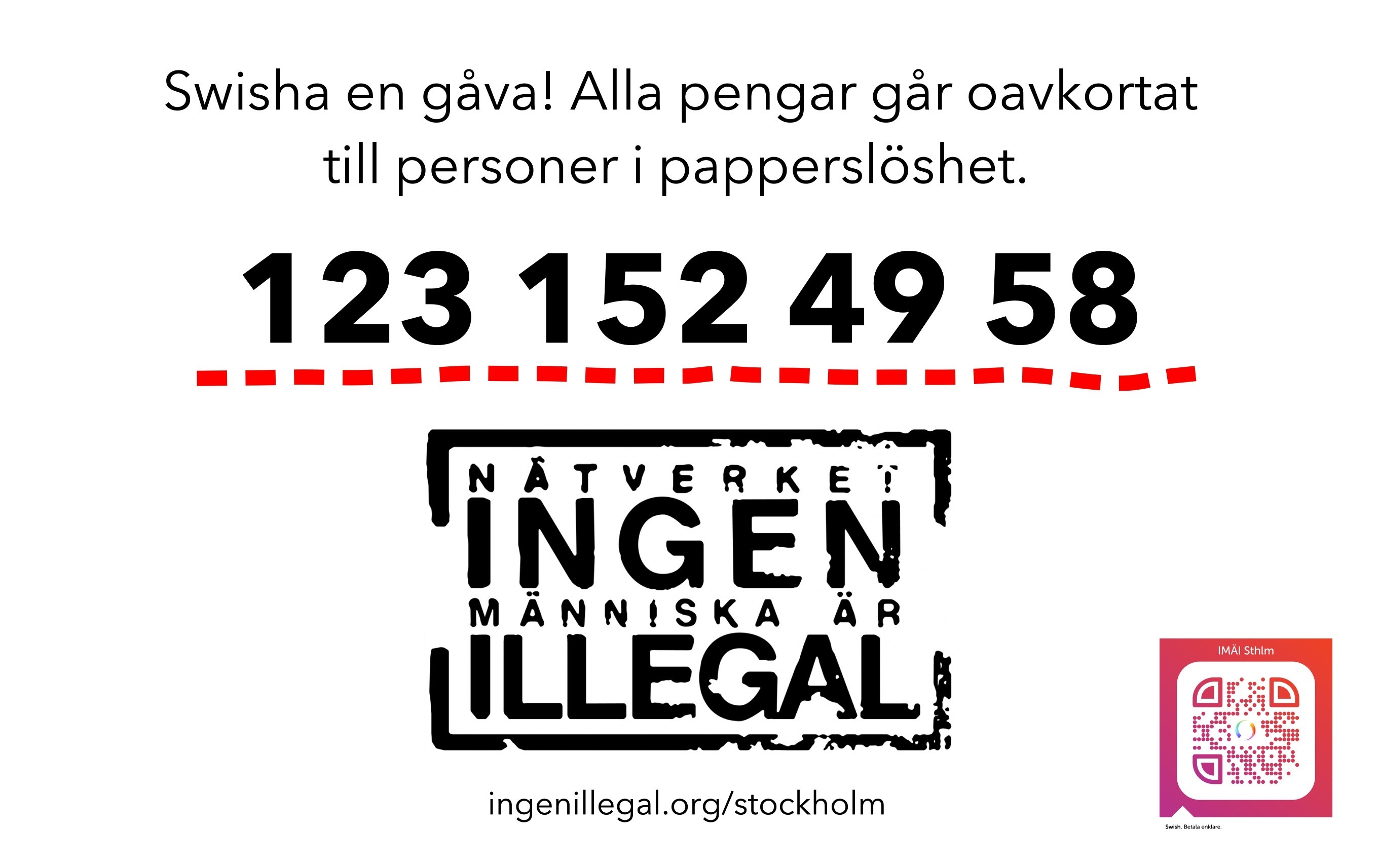



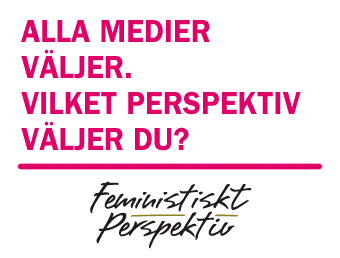












MEST KOMMENTERAT
SENASTE KOMMENTARERNA
Om Var Grupp 8 en feministisk organisation?
Om #bildskolan 21: Att äta Den Andre
Om #bildskolan 21: Att äta Den Andre
Om Porr handlar om betalda övergrepp
Om Nobels fredspris till kampanj för att avskaffa kärnvapen
Om Feministiskt perspektiv öppnar arkivet och startar på nytt!
Om Rödgrönt ointresse för fred och nedrustning borde oroa många
Om Var inte målet att vi skulle jobba mindre?
Om Feministiskt perspektiv öppnar arkivet och startar på nytt!
Om Feministiskt perspektiv öppnar arkivet och startar på nytt!
MEST LÄST